What is AI Crypto?
AI Crypto consists of blockchain projects and cryptocurrencies and tokens which implement AI technology to boost system performance through automated intelligence.
How AI is Changing Cryptocurrency?
The Convergence of AI and Blockchain in Web3
The fast development of technology indicates that Artificial Intelligence (AI) will integrate with blockchain technology throughout the next few years. Web3 requires this exact combination because it unites decentralized networks with advanced data processing systems.
AI systems in this new environment function autonomously to generate their own decisions. The system employs machine learning to analyze extensive data collections for user behavior predictions.
Blockchain technology operates with complete transparency because its immutable records maintain honest and unalterable transaction records.
The system provides faster transactions through its combined design which also delivers superior security protection. The system establishes trust as its fundamental element which supports decentralized economic operations.
AI systems operating smart contracts and fraud detection functions establish an efficient and resilient system through their automated operations.
AI and blockchain technology merge to generate innovative solutions which transform digital platform operations into a more intelligent Web3 environment. [cited]
How AI is Transforming Crypto & Web3?
Transformative Applications of AI in Cryptocurrency
The expanding cryptocurrency market uses artificial intelligence (AI) to develop new operational systems which enhance user experiences. Machine learning algorithms help systems identify complex market patterns which enables them to generate accurate price predictions that investors can use for improved investment decisions.
AI automation systems enhance blockchain operations through optimized transaction validation and improved smart contract performance which results in enhanced security and performance.
Automated Crypto Trading with AI Bots
AI algorithms integrated into automated trading systems enable real-time analytics-based trade execution which results in improved profitability and minimizes human emotional interference in trading decisions.
The sectoral impact creates intelligent systems which adapt to user requirements and market fluctuations. The AI and cryptocurrency partnership creates secure and efficient systems which will establish the base for Web3’s expected autonomous decentralized networks as shown in the detailed data flowchart in [cited].
| Application | Description |
| Real-Time Data and Sentiment Tracking | AI scans social media, news outlets, and blockchain activity to track sentiment around specific tokens, enabling traders to spot market shifts promptly. |
| Algorithmic and High-Frequency Trading | AI tools execute trades at high speeds, detecting price differences between exchanges and placing trades in milliseconds, adapting strategies to changing market conditions. |
| Portfolio and Risk Management | AI measures volatility, calculates risk, and adjusts portfolio allocations automatically, helping traders stay disciplined and manage risk effectively. |
| Automated Trade Execution | AI sets up rules and acts on them without hesitation, executing trades based on predefined parameters, reducing human errors under stress. |
| Market Making and Liquidity | AI supports exchanges and professional firms by improving liquidity, managing inventory, and tightening spreads for smoother trading. |
| Decentralized Finance (DeFi) Automation | AI-driven bots autonomously execute trades and manage investments in DeFi platforms, enhancing transaction security and customer experience. |
| AI Agents in Crypto | Autonomous AI agents automate trades, manage wallets, and optimize DeFi strategies, bridging AI intelligence with Web3 execution. |
| AI in Blockchain Network Optimization | AI enhances blockchain network performance, scalability, and efficiency, with projects like SingularityNET and Fetch.ai integrating AI into blockchain applications. |
| AI-Enhanced Governance and Compliance | AI assists in governance and regulatory compliance by analyzing data, identifying risks, and suggesting regulatory measures, as seen in platforms like Cindicator. |
| AI for Market Insights and Analytics | AI-driven platforms provide insights into market trends, sentiment analysis, and investor behavior, with projects like Santiment and IntoTheBlock offering comprehensive analytics. |
AI Applications in Cryptocurrency
AI in Web3
AI integration enables decentralized networks to perform autonomous decision-making and predictive analytics and intelligent contract execution and decentralized governance guidance and personalized digital interactions.
The AI-crypto sector includes Fetch.ai and Bittensor and Render and The Graph which implement machine learning for routing and compute and analytics and decentralized AI training operations.
Web3 AI implementation brings three main benefits to the system which include faster data processing and better prediction accuracy and improved decentralized system operation and automated economic transaction trust.
Real-World Use Cases of AI in Crypto: In Decentralized Ecosystems
Artificial intelligence systems that join decentralized networks create a complete transformation in the execution and monitoring of digital transactions.
AI trading bots achieve their capabilities through advanced algorithms which process extensive market data to execute quick and efficient trading operations.
The automated system improves decision processes by minimizing human mistakes and emotional responses which affect traditional manual trading operations.
AI systems use machine learning to monitor blockchain transactions for detecting unusual patterns which could indicate security threats or fraudulent activities.
The system provides users with improved security through its advanced protection features which defend their financial operations on decentralized platforms.
The development of AI technology shows that decentralized systems will reach high scalability and intelligence levels which will establish a more robust digital economy.
The system shows how blockchain technology allows different applications to function together for achieving success.

Image1. Diagram of Generative AI Use Cases
| Use Case | Description | Source |
| Decentralized Trust Framework for Smart Cities | Integrating blockchain and AI-driven threat detection to enhance cybersecurity and data integrity in smart city infrastructures, achieving a threefold increase in transaction throughput and a 30% reduction in latency compared to traditional systems. | Decentralized trust framework for smart cities: a blockchain-enabled cybersecurity and data integrity model |
| Decentralized Artificial Intelligence in IoT Ecosystems | Employing federated learning within decentralized AI systems to improve inference speed and reduce network bandwidth needs, while maintaining data security and privacy in Internet of Things (IoT) applications. | Decentralized Strategy for Artificial Intelligence in Distributed IoT Ecosystems: Federation in ASSIST-IoT |
| Blockchain-Enabled Federated Learning for Algorithmic Fairness in Healthcare | Designing a blockchain-based federated learning platform to develop predictive healthcare models that ensure algorithmic fairness and protect patient data privacy. | Architectural Design of a Blockchain-Enabled, Federated Learning Platform for Algorithmic Fairness in Predictive Health Care: Design Science Study |
| Decentralized Biobanking with Non-Fungible Tokens (NFTs) | Utilizing blockchain and NFTs to create a decentralized biobanking system that empowers patients in biospecimen research, ensuring data integrity and patient privacy. | Non-Fungible Tokens for Organoids: Decentralized Biobanking to Empower Patients in Biospecimen Research |
| AI-Powered Governance in Decentralized Economies | Implementing AI to analyze and evaluate proposals within Decentralized Autonomous Organizations (DAOs), enhancing decision-making processes and governance efficiency. | Can AI Govern Decentralized Economies? |
Real-World Use Cases of AI in Decentralized Ecosystems
Future of AI and Blockchain
The development of AI + blockchain technology will follow these key directions:
Autonomous Web3 Agents
AI bots will establish direct access to DeFi protocols and DAOs and marketplaces for their interactions.
Smart Contract Automation
Smart contracts will become deployable through automated systems because LLMs can generate them automatically with reduced human intervention.
Zero-Knowledge AI (zkML)
AI systems can perform calculations on protected information which leads to better privacy protection and secure untrusted data analysis.
Decentralized AI Training (DeAI)
Web3 networks will operate together to train AI models by using distributed systems which remove the need for central server management.
AI-Powered Governance
DAOs will implement AI technology for three main purposes:
- proposal ranking
- voter turnout prediction
- treasury optimization
- conflict resolution
The integration of AI technology with blockchain systems enables the development of automated digital economic platforms which operate independently from human control.
AI in Blockchain Technology
AI technology enhances blockchain systems through these particular implementations:
- Intelligent Validation
AI systems choose the most suitable validator groups which results in better energy performance and faster block transmission.
- Smart Auditing & Risk Analysis
AI systems monitor code and on-chain activities to detect security vulnerabilities which attackers have not yet identified.
- Blockchain Scalability
AI models work to maximize:
- sharding
- network throughput
- gas fee prediction
- Secure Identity Verification
AI technology performs automated biometric verification to create protected decentralized identity systems.
- Supply Chain Intelligence
AI systems track blockchain-based logistics data to detect and prevent fraudulent activities.
AI functions as the decision-making center which depends on blockchain to store secure decentralized system data.
Conclusion
The combination of artificial intelligence and blockchain technology will transform digital operations through enhanced operational efficiency and security and automated systems.
These technologies work together to create trustless systems which use AI predictive analytics and automated decision systems to boost operational efficiency in financial and supply chain operations.
Smart contracts with intelligent features and decentralised autonomous organisations (DAOs) demonstrate the complete transformation potential by creating self-operating digital economic systems that need no central control.
Users need to change their technology usage because intelligent systems deliver improved privacy protection and enhanced user experiences.
The basic framework of this link becomes clear through [cited] which shows the data processing systems that support these technological developments. The network will establish an intelligent Web3 ecosystem through AI and blockchain integration to develop a decentralized system.
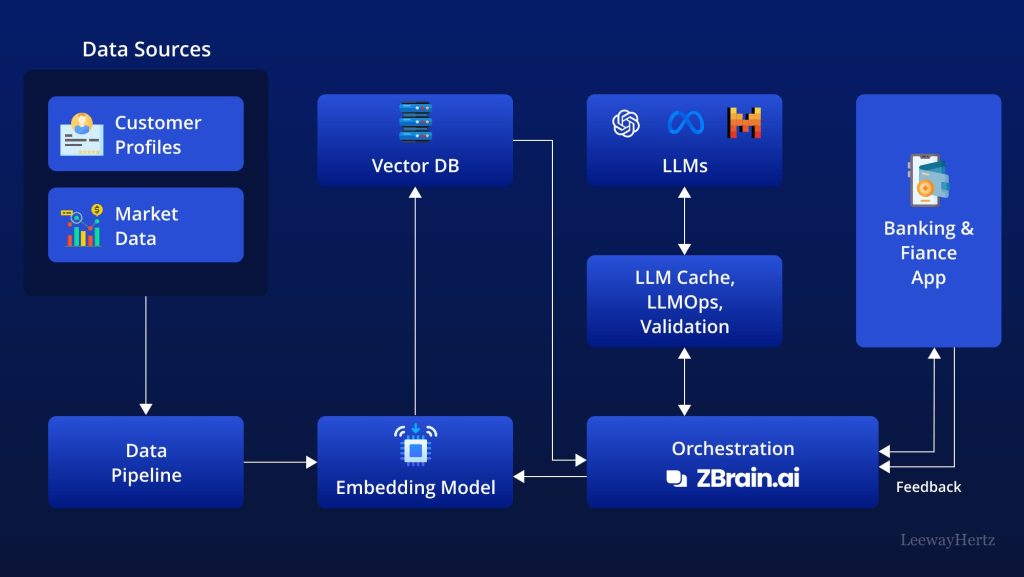
Image2. Architecture diagram of a banking and finance data processing system.
References:
- Ronald Legarski. ‘Tokenomics.’ The Recursive Framework of Digital Assets, Blockchain Economies, and Tokenized Value Exchange, SolveForce, 2/21/2025
- Dac-Nhuong Le. ‘Applications of Blockchain and Artificial Intelligence in Finance and Governance.’ A M Viswa Bharathy, CRC Press, 11/8/2024
- ‘”The AI Crypto Revolution: WEB3 and Decentralization”.’ Clyde Harvey Jr., 5/1/2023
Image References:
- Image: Diagram of Generative AI Use Cases, Accessed: 2025. https://d3lkc3n5th01x7.cloudfront.net/wp-content/uploads/2024/01/11202325/Generative-AI-Use-Cases-and-Applications-Banner.png
- Image: Architecture diagram of a banking and finance data processing system., Accessed: 2025. https://d3lkc3n5th01x7.cloudfront.net/wp-content/uploads/2023/02/05233523/AI-in-Banking-and-Finance-1.png
You need to login in order to Like



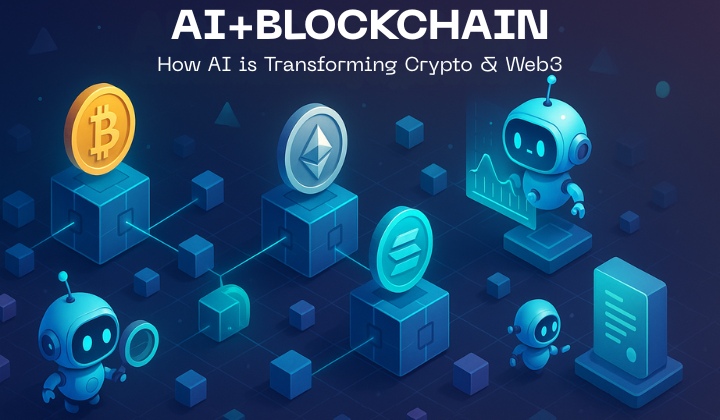



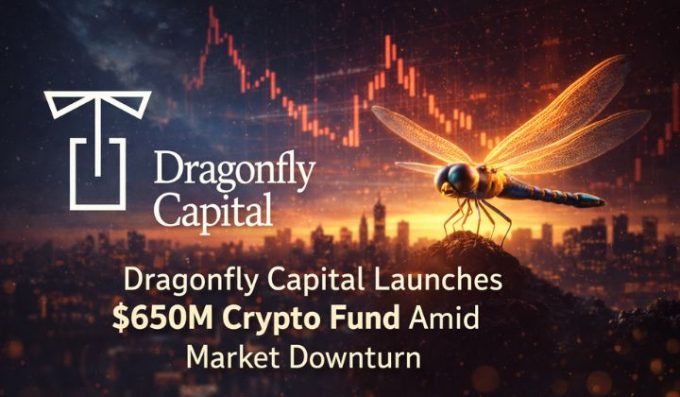


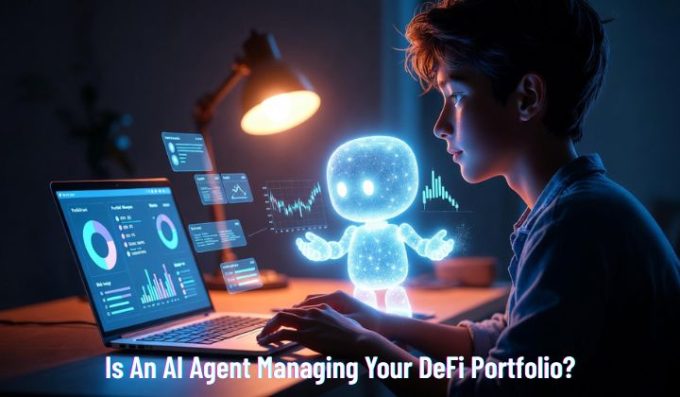

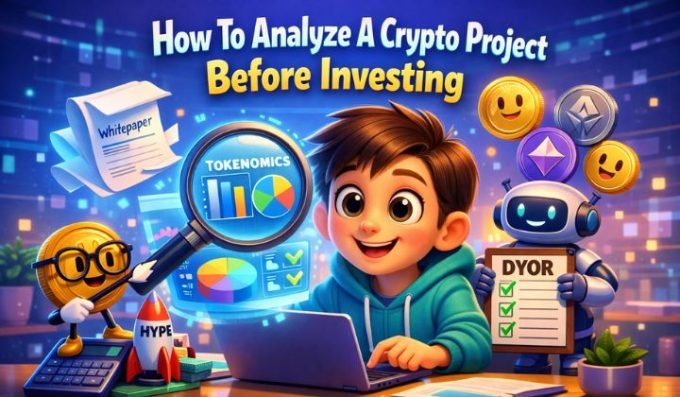

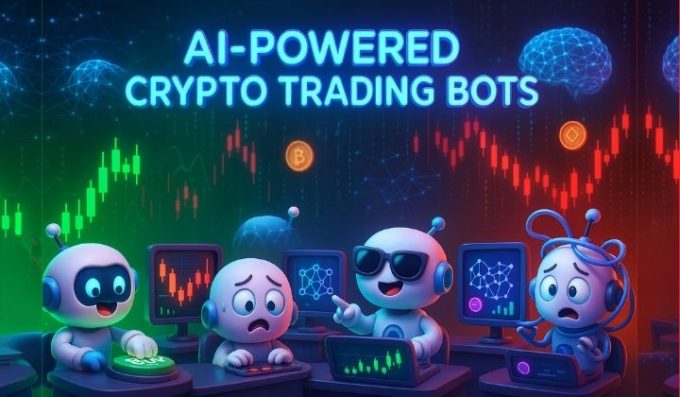

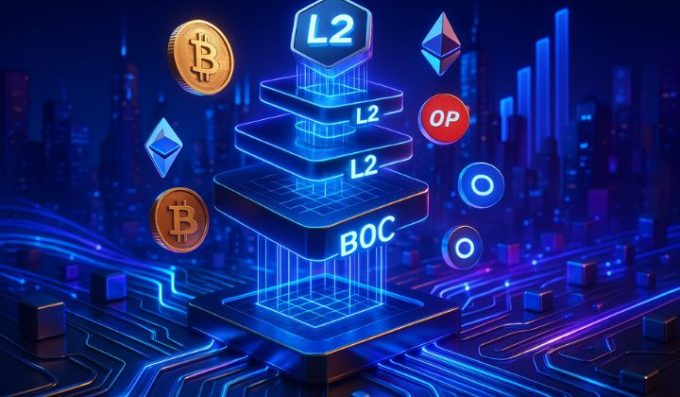



Leave a comment